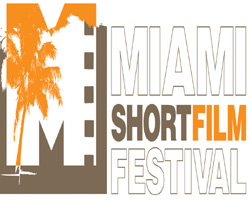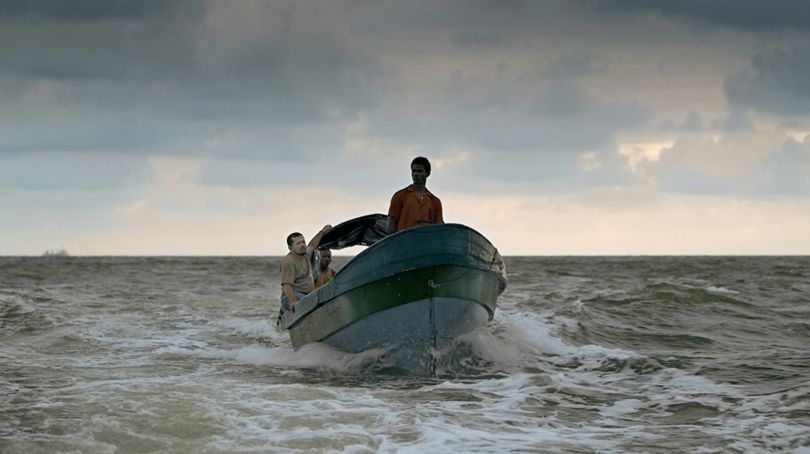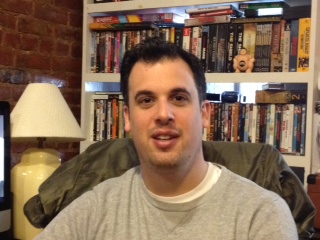|
|
||
|
Pro Tools
FILMFESTIVALS | 24/7 world wide coverageWelcome ! Enjoy the best of both worlds: Film & Festival News, exploring the best of the film festivals community. Launched in 1995, relentlessly connecting films to festivals, documenting and promoting festivals worldwide. Sorry for the disruptions we are working on the platform as of today. For collaboration, editorial contributions, or publicity, please send us an email here. User loginActive Members |
Tribeca Film Festival 2014 Interview with Director Josef Wladyka - "Manos Sucias"
Manos Sucias is a film about the port of Buenaventura-the most dangerous city in Colombia- where three men embark on a journey over the dark murky waters of the Pacific. A set of mysterious coordinates is their guide, a fishing net is their cover, and a narco-torpedo filled with 100kg of cocaine is their cargo. Following estranged brothers as they risk everything for a chance at a better life, Manos Sucias takes a close look at life at the bottom of the food chain in the international drug trade. Executive produced by Spike Lee. As part of the Spotlight selections at the 2014 Tribeca Film Festival, we sat down with film director Josef Wladyka, who spoke about directing his first full-length feature, process of filmmaking in Columbia, the nature and future of “Manos Sucias”, and more. Where did the central idea of Manos Sucias come from? It initially sparked when I was in South America, Ecuador, back in 2006, with a close friend of mine. We were going along the Pacific coast and we would come across towns completely abandoned and under sieged by a lot of different things, such as contraband, narco trafficking. A lot of fishermen we were receiving rides from, would tell us various stories of people who would get inside these home made narco submarines, built in jungles that later would traffic drugs and how a lot of people would be extorted in this line of work, often times not have any other choice. I thought that was an interesting idea for a film. This was the summer right before I graduated from the film program at NYU. Over the next 3 years, when I could, I would travel back and research more with a friend, Kelly Morales that is native from the area, whose family is originally from Tumaco. With her I was able to do more in-depth research, go to these specific areas around Buenaventura, and Tumaco and I also got permission from the Columbian government to go the Malaga naval base where they captured narco submarines and torpedo’s to see in first hand. Can you tell us more about the casting process? The majority of the cast are theater students, they study at the Universidad del Valle Sede Pacifico, in Buenaventura. It is a serious acting program and I was connected with one of their teachers. The school has 60 to 80 students each year going, through this acting program. When I met Cristian (Dello) the younger character, he was a student at the time and when I first auditioned him, I thought he was incredible. The script was quite different, me and my co-writer (Alan Blanco) decided to change it, inspired by his energy and personality. They aren’t completely non-actors, but very talented and serious drama students, they just have never been in a film before. A lot of our pre-production and rehearsal process was preparing them for the film and getting very intimately close, so they could share a lot of personal things and get the performances we needed in the film. Once I cast them, we changed the dialogue to get the colloquial language spoken in Buenaventura. Certain scenes were real life stories that happened in their lives. It was a very intimate process with the best actors I have ever worked with. This is your first feature film. How was the transition, coming from directing commercials, and short films? It’s all sort of a preparation, but nothing can really prepare you for how large of an endeavor it is to make a feature film. Specially this specific film, we didn’t shoot in New York, this was an extremely difficult place to shoot with stressful conditions. A huge jump, very difficult physically and mentally for me, but we managed to get through it. I don’t think there is something that can really prepare you for a narrative. I have crewed on narrative films. Alan and me were the sound team on one of Spike Lee’s recent films “Red Hook Summer”, I have been a PA on feature films, so I understood the hours and what it feels like, but as a director, it’s very different. When reading the synopsis, you would expect the cliché of another drug trade film in Columbia, but Manos Sucias is not, what made you decide to go beyond that common theme? I lived in Bogota for 3 months just practicing my Spanish. In Colombia my teachers didn’t realize that I was making this film. When I mentioned I was a filmmaker they thought “…not another film about drugs”. To me it’s not about that, you don’t even see drugs in the film, it’s about a place that’s under sieged, historically forgotten by a lot of people, so I believe the film can bring a light to a place where people don’t really have a voice. Why did you choose Manus Sucias as the title? In English it translates to dirty hands, which is not a good title in English. It’s a metaphor for when you get involved in this kind of world you will have to get your hands dirty. It’s the journey for the younger brother because it’s the lost of his innocence. At the beginning of the film he is this bright eyed kid, dancing, having fun, not really realizing what he is getting into. At the end of the film , after killing a man, his essence is lost, he is kind of killing himself. Again for me it’s the lost of innocence. We used a lot of imagery of hands in the film, for example when Cris is holding his kid. It’s a dominant poetic image of the film. The fisherman in these areas they use coffee grounds to clean their hands, get rid of the smell of fish, but at some point you can’t get rid of the smell. We did have a beautiful voice-over in the opening to reflect this, but even though we didn’t use it, the essence is still there. What are the expectations of this film? We had the premiere at the Cartagena film festival in Columbia, before Tribeca last month and it was a very emotional experience for all of us. The actors hadn’t seen the film before. We brought 3 actors from Buenaventura to Cartagena. The audience reaction was very different than in NY, very emotive it strikes a cord with Columbia, they don’t want to face this particular region that is kind of dismissed. While we were in Cartagena for the film screening, there was news coming from Buenaventura, about the violence and many protests to stop the violence, so the journalists were very interested in the film. In Columbia we already have distribution, by Cine Columbia. A lot of things on the horizon in the US at the moment, with very positive reactions. I consider this film to have a universal message. Although it’s about such a specific place, if you look at our filmmaking team, we are from all around the world and it deals with a bigger issue. Looking at something so specific under a microscope can start a dialogue for a macro idea of what’s going on with narco trafficking. Are you working on future film projects? My co-writer and me are starting to develop new ideas, nothing concrete but definitely another feature.
Tribeca Film Festival 2014 by Lia Fietz
24.04.2014 | Tribeca Film Festival's blog Cat. : FESTIVALS
|
LinksThe Bulletin Board > The Bulletin Board Blog Following News Interview with EFM (Berlin) Director
Interview with IFTA Chairman (AFM)
Interview with Cannes Marche du Film Director
Filmfestivals.com dailies live coverage from > Live from India
Useful links for the indies: > Big files transfer
+ SUBSCRIBE to the weekly Newsletter DealsUser imagesAbout Tribeca Film Festival Online Dailies Coverage of the Tribeca Film Festival, April 17-28, 2013
The Tribeca Film Festival brings together local, national, and international talent to provide the New York City, downtown community with five days of screenings, educational workshops, and various special events.
View my profile Send me a message My festivalThe EditorUser links |
















